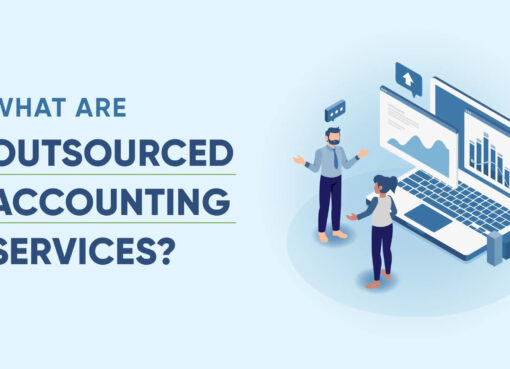A Complete Guide to PMP Exam Preparation
In today’s project-driven world, the Project Management Professional (PMP)® Certification is a globally recognized credential that demonstrates your ability to manage projects, lead teams, and deliver results. Offered by the Project Management Institute (PMI)®, the PMP certification is the gold standard for project managers across industries.
But how do you prepare effectively for the PMP exam? What steps should you follow to ensure success on your first attempt?
At Unichrone, we understand the importance of structured and efficient preparation. In this guide, we’ll walk you through a detailed, step-by-step plan to help you conquer the PMP exam and earn your certification with confidence.
Step 1: Understand the PMP Exam Structure
Before diving into preparation, it’s essential to understand the PMP exam format. The current PMP exam reflects the PMI Talent Triangle and focuses on:
- People (42%) – emphasizing leadership and soft skills
- Process (50%) – reinforcing technical aspects of project management
- Business Environment (8%) – highlighting the connection between projects and organizational strategy
Exam format:
- Duration: 230 minutes
- Number of questions: 180
- Type of questions: Multiple-choice, multiple responses, drag-and-drop, hotspot, and fill-in-the-blank
- Breaks: Two 10-minute breaks (optional)
Understanding the format helps reduce anxiety and allows you to tailor your preparation accordingly.
Step 2: Check Your Eligibility
To apply for the PMP exam, you must meet the following criteria:
If you have a four-year degree:
- 36 months of project management experience
- 35 hours of project management training or CAPM® Certification
If you have a high school diploma or associate degree:
- 60 months of project management experience
- 35 hours of project management training or CAPM® Certification
If you meet the eligibility requirements, you’re ready to move on to the next step.
Step 3: Enroll in a PMP Certification Training Course
One of the best ways to prepare for the PMP exam is to enroll in a PMI-authorized PMP Certification Training Course. At Unichrone, our training covers the entire PMP syllabus and offers:
- 35 contact hours (as required by PMI)
- Instructor-led sessions
- Real-world case studies
- Practice questions and mock exams
- Access to recorded sessions and materials
Step 4: Become Familiar with the PMP Exam Content Outline
The PMP Exam Content Outline by PMI is your roadmap to the exam. It details the three domains (People, Process, Business Environment), along with the tasks and enablers associated with each.
Studying this document will help you:
- Identify knowledge areas that require extra focus
- Align your study plan with PMI’s expectations
- Prepare for situational and scenario-based questions
Step 5: Create a Study Plan and Timeline
Creating a well-organized study schedule is crucial for success. Here’s how to build an effective study plan:
- Determine your target exam date (give yourself 2–3 months for preparation)
- Allocate daily/weekly study hours based on your availability
- Divide topics into manageable chunks (e.g., one knowledge area per week)
- Incorporate time for practice tests and revision
- Use a calendar or planner to track your progress
Step 6: Study the PMBOK® Guide and Agile Practice Guide
The PMBOK® Guide (7th Edition) is the official reference book for the PMP exam. While it no longer follows a strict process-based format, it emphasizes principles and performance domains relevant to today’s project environments.
In addition, the Agile Practice Guide provides critical insights into Agile and hybrid methodologies, which now form a significant part of the exam.
Tips:
- Focus on principles and values rather than rote memorization
- Understand Agile frameworks like Scrum, Kanban, and SAFe
- Learn how to apply both predictive and adaptive approaches
These guides are essential to building your conceptual foundation.
Step 7: Use PMP Prep Books and Study Resources
Apart from official PMI resources, consider popular PMP prep books and study aids such as:
- Rita Mulcahy’s PMP Exam Prep
- Andy Crowe’s “The PMP Exam: How to Pass on Your First Try”
- PMP Exam Simulator (PMTraining, PrepCast, etc.)
These materials offer:
- Simplified explanations
- Practice questions with explanations
- Exam-taking strategies
- Flashcards and mind maps
At Unichrone, we also provide comprehensive digital resources and guides to supplement your study efforts.
Step 8: Practice with Mock Exams and Simulated Tests
Mock exams are essential to gauge your readiness. They help you:
- Get familiar with the question format
- Improve your time management
- Identify weak areas for revision
- Build confidence
Aim to take at least 3-5 full-length mock exams before your actual test. After each mock test:
- Analyze your answers
- Review incorrect responses
- Revisit topics you struggled with
Unichrone offers full-length simulated exams as part of our training program.
Step 9: Master Exam-Taking Strategies
To ace the PMP exam, you need more than just knowledge. Smart test-taking strategies can make a difference:
- Read each question carefully – PMI questions often test situational judgment
- Eliminate wrong options – Use the process of elimination to narrow choices
- Answer easy questions first – Don’t get stuck early on
- Manage your time – Allocate ~1.2 minutes per question
- Mark and return – Flag uncertain questions to review later
By practicing these strategies during your mock tests, you’ll be better equipped on exam day.
Step 10: Schedule and Take the PMP Exam
Once you’ve completed your preparation and feel confident, it’s time to schedule the exam through the PMI website.
Steps to schedule:
- Log into your PMI account
- Submit your PMP application
- Get approval and receive your eligibility ID
- Choose your exam format (online or test center)
- Select your date and pay the exam fee
Exam fees:
- PMI members: USD 405
- Non-members: USD 555
Online proctored exams are a convenient option for candidates worldwide.
Step 11: Maintain Your PMP Certification
Once you pass the exam and become a certified PMP, you need to maintain your credential through the Continuing Certification Requirements (CCR) program.
- Earn 60 PDUs (Professional Development Units) every three years
- PDUs can be earned through:
- Training courses
- Webinars
- Volunteering
- Work-related project management experience
Final Tips for PMP Exam Success
- Stay consistent and committed – Stick to your plan
- Join study groups or forums – Engage with other PMP aspirants
- Use visual aids – Diagrams, flowcharts, and mind maps simplify complex topics
- Take care of yourself – Don’t neglect rest and nutrition
- Stay positive – Believe in your preparation and capabilities
PMP exam preparation is a journey, but with the right resources and guidance, you can achieve your goal.
Why Choose Unichrone for PMP Certification Training?
At Unichrone, we provide best-in-class PMP Certification Training that is:
- PMI-authorized and globally recognized
- Delivered by certified experts with industry experience
- Designed to suit both beginners and experienced professionals
- Available in live online, classroom, and self-paced formats
Conclusion
PMP certification opens doors to new opportunities, higher salaries, and increased credibility in the project management field. But the journey to becoming a PMP requires structured preparation, focus, and expert guidance.
With Unichrone as your training partner, you can confidently take the PMP exam and join a global community of certified professionals.Let us help you take the first step in your PMP journey. Enroll in Unichrone’s PMP Certification Training today!
Frequently Asked Questions (FAQs)
- How long does it take to prepare for the PMP exam?
Typically, it takes 2–3 months of consistent study to prepare effectively. - Is PMP exam difficult?
Yes, the exam is challenging, but with the right training and preparation, it is manageable. - Can I take the PMP exam online?
Yes, PMI offers an online proctored exam option for flexibility and convenience. - What happens if I fail the PMP exam?
You can retake the exam up to three times within your one-year eligibility period. - Does Unichrone offer post-training support?
Absolutely. We provide post-training guidance, exam tips, and additional resources to help you succeed.






Leave a Comment